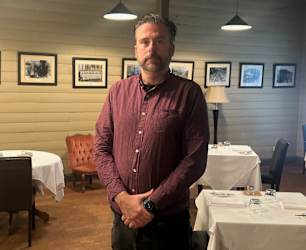Helensburgh’s Gina Krohn is showing how a great teacher librarian can turn the library into the beating heart of the school.
Named the 2025 Teacher Librarian of the Year by the School Library Association of NSW, she was recognised for her outstanding work in a primary school and her advocacy for teacher librarians across the country.
“The teacher librarian is the only teacher that teaches absolutely every child from kindergarten through to when they leave,” Gina says.
“Reading is a fundamental skill, it’s a life skill, and it doesn't just happen. In class, you’re taught to read; in library, you’re encouraged to learn how to love to read.”
Based at Glenfield Public School in south-west Sydney, Gina says there’s more to a school library than people often realise, especially in primary school.
As well as books, it provides hands-on learning through LEGO and coding clubs, while roles such as library monitor and book ambassador give students a chance to lead and feel part of the school community.
“If you can get kids involved in reading, I think you can solve a lot of their future problems,” Gina says. “It teaches them empathy and perspective, it takes them outside of themselves – and some kids need that.”
For many, it’s also where they feel most at ease.
“For a lot of kids, the library is their safe space,” she says. “Some kids aren’t comfortable on the playground and the library presents them with a great escape."

Gina points to decades of national and international research showing that a qualified librarian and a well-resourced library can lift academic outcomes for students, regardless of their background.
“Teacher librarians do two main things,” she says. “One is trying to get kids to read, and instill a love of reading for them. The other is teaching information literacy, which most people don’t realise we do.
“There’s lots of things about libraries that people don’t recognise, because it doesn’t typically appear on school reports.
“So it’s invisible in a way, and that’s a real shame because it’s often said it’s the heart of the school.
“People think we just check out books and chase kids and tell them to shush, but it’s a bit more than that.”
The job includes running the library budget, curating the collection, designing programs and managing student engagement and tech.
“It can be quite an isolating job, as usually there’s only one of us in a school,” she says.
“In some states in Australia, we don’t even have primary school librarians anymore – it’s almost like a dying profession.
“I’m hoping that I can use the librarian award to advocate for the fact that libraries are actually very important.”
A voice for school libraries
On top of running a busy school library, Gina has spent years advocating for her profession and creating resources to support students and fellow librarians.
In 2018, she brought school librarians together by organising a conference that led to the creation of the Primary Libraries: Creative Collaboration website, a free online hub filled with teaching programs, policies, author links and advice.
Two years later, she launched a petition calling on the NSW government to ensure every public school uses its allocated funding to employ a trained teacher librarian. The petition gained more than 1000 signatures and helped put the issue on the radar.
In recognition of her efforts with the Students Need School Libraries campaign, Gina received the John Hirst Award in 2022.
In 2023, Gina launched the PLCC Backpack Project, a national initiative helping reluctant readers connect with stories in creative ways.
“The idea was to send these packs out to schools to get kids interested in reading, but not just with the books,” she says.
“The backpacks have games in them, activities to do, toys ... some of them have dress-ups. It’s to give the kids another way to get into the story.
“If you’re not an avid reader, you could experience a story by approaching it in a different way.”
Each backpack includes books by Australian authors, along with themed items to help bring the stories to life.
Since the project began, there have been more than 300 bookings, reaching over 25,000 children across Australia.






